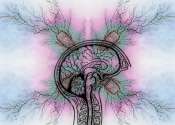Study reveals mixed public opinion on polygenic embryo screening for IVF
Three out of four U.S. adults support the use of emerging technologies that estimate a future child's likelihood of developing health conditions influenced by multiple genes—such as diabetes, heart disease, and depression—before ...
3 hours ago
0
0









